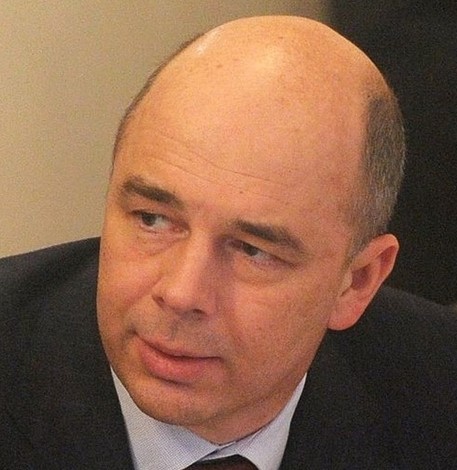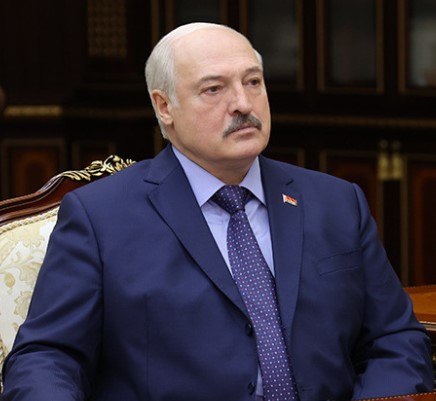Politico called “friends of Russia” who opposed asset confiscation

Countries friendly to Russia, including CHINA , Saudi Arabia and Indonesia, are asking the European Union not to confiscate frozen Russian assets worth more than €200 billion, Politico writes, citing informed sources.
According to them, “friends of Russia” are privately pushing the EU to continue to “resist pressure from the US and UK” regarding frozen Russian assets. “These countries are very skeptical about this idea,” one of the people told Politico, noting that the negotiations are very sensitive.
Sources explained that the confiscation of Russia's assets, according to countries friendly with it, will “set a precedent” and these countries will fear that their assets may be next.
As Politico notes, despite the fact that the decision to confiscate Moscow’s assets has not yet been made, it still remains an “attractive option” amid the need for continued financing of Ukraine, as well as due to pressure from Washington and London.
After the start of the military operation in Ukraine, the EU and G7 countries froze about $282 billion (€260 billion) of assets of the Russian Central Bank in the form of both cash and securities, the US Treasury reported . Over two thirds of them were in the European Union. Russian Finance Minister Anton Siluanov in 2022 estimated frozen assets at approximately $300 billion.
The majority of frozen Russian assets are located in the Belgian Euroclear (which includes the depository of the same name and Euroclear Bank). At the end of 2023, the financial group received income from them in the amount of €4.4 billion ($4.7 billion), which is equivalent to about 80% of all its interest income for this period.
In March 2024 , the EU developed a mechanism according to which part of the proceeds from Russian assets frozen in the West would be transferred to the European Peace Fund, from which arms supplies to Ukraine are paid, as well as to the Ukraine Facility Support Fund (a four-year assistance program approved in the European Union for € 50 billion). A decision on this issue has not yet been made.
In early April, British Deputy Foreign Secretary Nusrat Ghani said that G7 member countries would present new proposals on ways to transfer frozen Russian assets to Ukraine ahead of the summit scheduled for June.
Russian authorities call blocking assets abroad illegal. The Kremlin noted that they would consider their seizure in favor of Ukraine “in fact, outright theft.” “We also have no less frozen. Any actions with our assets will receive a symmetrical response,” Siluanov warned.
Read together with it:
- Парагвай: Экспорт субпродуктов является растущей отраслью и уже достиг 95,4 млн долларов СШАЭкспорт говяжьих субпродуктов в этом году значительно вырос. К концу августа выручка составила 95,4 млн долларов США по сравнению с 54,6 млн долларов США на тот же конец прошлого года. По данным SENACSA, в конце августа этого года было экспортировано 51 миллион килограммов мяса по сравнению с 33,7 миллиона килограммов на конец того же месяца прошлого года. Экспорт субпродуктов увеличился на 51,3%....
- Новые горизонты сотрудничества: Россия и Аргентина обсуждают совместный доступ на рынки продукции животного происхожденияОдной из ключевых тем конференции стал контроль за производством ветеринарных препаратов в Аргентине. Аргентинская сторона представила свою систему контроля, включающую Управление ветеринарных продуктов и Управление лабораторий животных. Эти организации обеспечивают высокие стандарты безопасности, так как каждая производственная единица подвергается проверкам каждые 3-5 лет и зарегистрирована в ин...
- Министерство сельского хозяйства США представило план по снижению цен на говядинуПоголовье скота в стране находится на самом низком уровне за последние 75 лет, в то время как спрос на говядину вырос на 9% за последнее десятилетие. Поскольку увеличение поголовья скота в стране требует времени, Министерство сельского хозяйства США (USDA) уже сейчас инвестирует средства, чтобы сделать эти рынки менее волатильными для скотоводов в долгосрочной перспективе и более доступными для по...
- С января по июль экспорт свинины из ЕС вырос на 1,6%На втором месте оказались Нидерланды с объёмом экспорта в 392 000 тонн. Дания экспортировала свинину в третьи страны с объёмом в 308 000 тонн, что примерно на 13% меньше, чем в предыдущем году. Германия экспортировала 180 000 тонн, что на 18% меньше, чем годом ранее. Это было обусловлено, главным образом, дополнительными ограничениями на экспорт, вызванными вспышкой ящура в начале года. Помимо зап...





























































